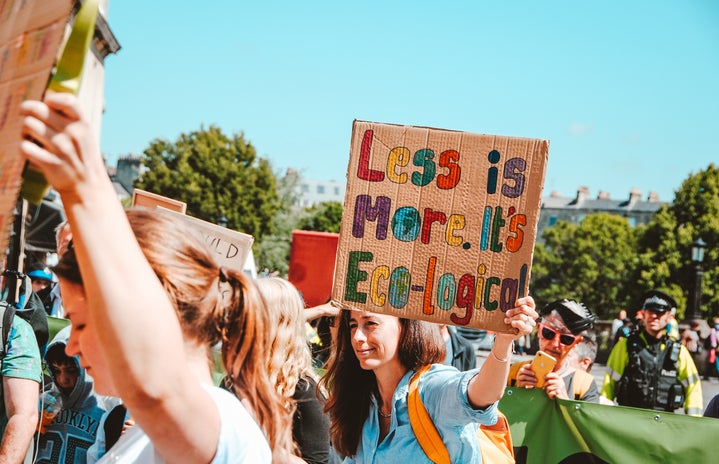While we all undoubtedly have come to know (and hate) the fad of Depop resellers, the fact that this is even a problem we have is evidence enough of how far the movement towards sustainable shopping has come. Sure, not everyone has gotten with the “f*ck fast fashion” memo, but the progress that has already been made towards normalizing thrifting is undeniable. But when it comes to searching on Depop for already-styled pieces or braving the chaos of your local thrift shop, which is preferable?
In exploring this question, I polled two of my friends who are not only certified thrifting experts but are also very well-read when it comes to the issue of sustainability. Jaimison, a 20-year-old whose personal style is best described as dark academia that dabbles in Donna Sheridan, said when it comes to preference, there’s no competition: “I know there are online thrift stores and markets like Depop, but the people selling on those sites are overpricing their items… thrifting in-person is a lot more fun, and you can find some really unique pieces that are no longer circulated in current stores.”
Jaimison brings up a great point by contrasting the prices you’ll encounter depending on where you’re shopping. Using secondhand apps like Depop or Poshmark, you’ll not only be paying the reseller more for the item, but for the shipping it’ll take to get to your doorstep. In all actuality, what you’re looking at is two new ethical complications.
That’s right, just as we have to weigh transportation costs when deciding how to make our eating habits more sustainable, we have to consider how getting endless packages might be affecting the environment even if they are from a secondhand app instead of amazon. Similarly, if the seller you’re buying from on these apps is, in fact, a scalper who routinely decimates their local thrift stores to resell online, supporting them isn’t helping sustainability either.

However, depending on what kind of shopping you’re planning on doing, secondhand app success might be preferable to making long drives to non-local thrift stores. My second friend, Isaac, whose personal style is more Victorian-era gothic ghost, agreed that thrift stores can be “more fun” and “provide the valuable opportunity to try clothes on prior to purchase.”
However, they pointed out that secondhand apps do have a considerable advantage. Specifically, secondhand apps make it “easier to find specific brands and items” that you might otherwise waste a ton of gas trying to thrift in person.
From a personal perspective, I understand the pros and cons of each. As someone who struggles with lethargy, thrifting in-person sometimes just isn’t feasible for me when I can just filter by brand online. However, my bank account isn’t always compatible with the inflated prices on these apps, and the idea of accidentally supporting a scalper is a huge turn-off.
The truth is, both are problematic if you’re buying too often. Even solely thrifting in person is problematic if you’re falling into overconsumption and only wearing each $2 blouse once. Though, according to CNN, “in general, it’s very difficult to pin down the environmental impact of e-commerce, it’s pretty clear that the climate would benefit if everything slowed down a little.” That means fewer shopping sprees regardless of how ethical you think the source is.
So, which should you do? I would argue whichever form of sustainable slow shopping, you’ll be able to keep going in the long haul. One month of perfect activism (if that’s even possible) isn’t the goal because that won’t make any meaningful difference for the future. Everyone has different needs, and it’s important to have them met if you’re going to avoid falling victim to the allure of fast fashion.



